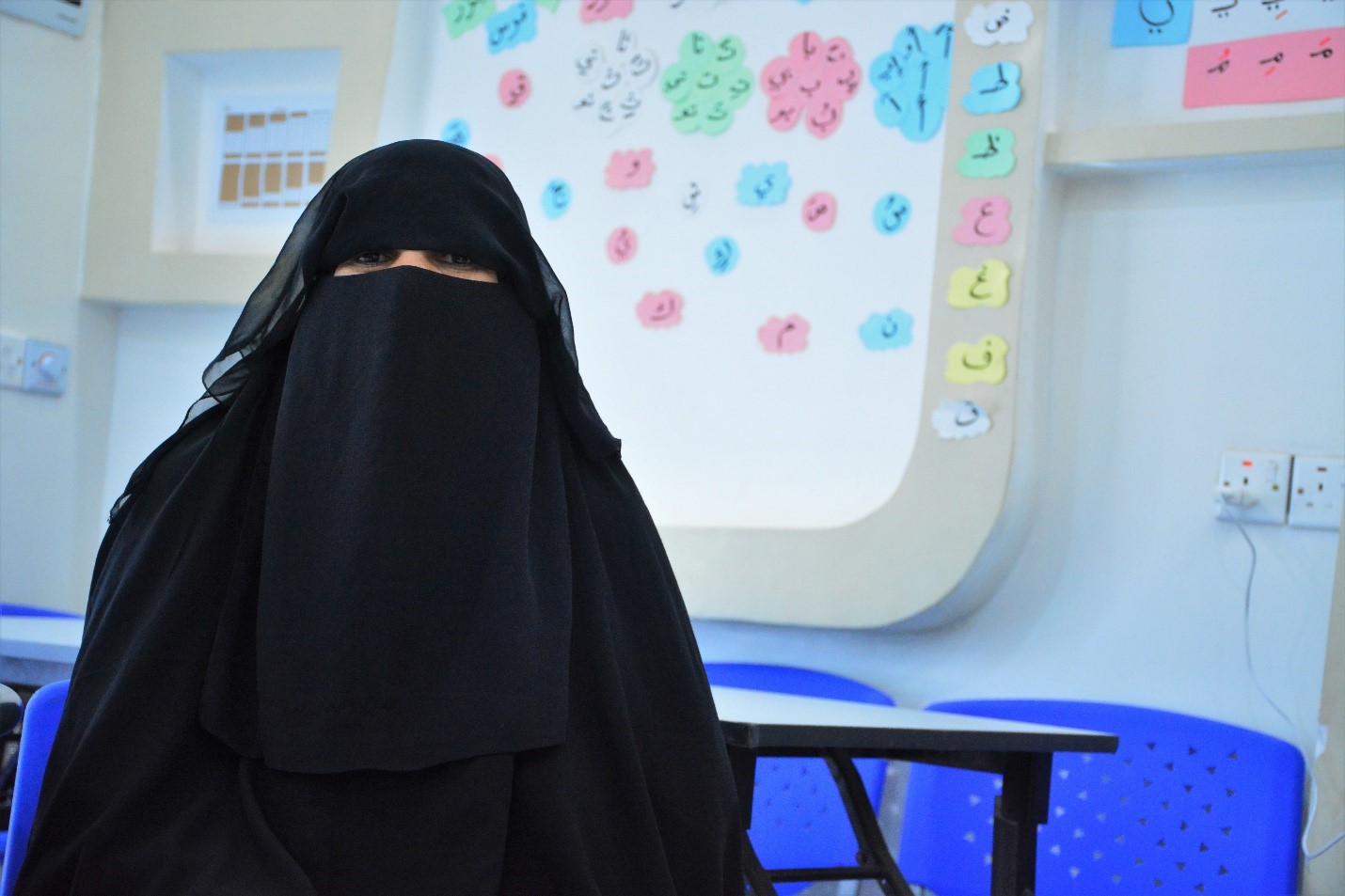Since the eruption of the war in 2015 in Yemen, the country’s civilian population continues to bear the brunt of the conflict. Women and girls are among the most vulnerable in Yemen. The conflict and its drivers are making an already dire situation worse for the protection and rights of women and girls. An estimated 6.1 million women in Yemen are in urgent need of protection services.
Traditionally, female participation in education is low because of social customs, particularly in the countryside of Yemen. The preference of Yemeni parents traditionally is for boys to go to school and for girls to help with farming and get married at a young age. “As many females in my country side, I used to go to the farm helping my father and herd sheep instead of going to school,” says Amal, a 35-year-old mother to five children from Ibb governorate, to the south of the capital Sana’a-Yemen.
Amal grew up in a family of farmers and lost her right to education. “I used to go with my father to his farms and perform my daily activities. My father supported me on this,” she says as she was reminiscing her childhood time back in her hometown Ibb city. Later on, Amal got married and now has five children. She was determined to educate her children and make sure they have their rights and a better future. “I enrolled my children at the school in our village as it is my dream that they continue their studies and become educated people in the future,” says Amal.
Due to the conflict and the economic crisis, Amal’s life deteriorated and she has to find a solution for a better life. “We used to have a happy, yet simple life. Because of the hard economic circumstances, we decided to flee with a hope that we would have a decent life. We fled to Marib city, to the east of Yemen,” she adds. “It is hard to leave everything behind just to stay alive. My children dropped out of school and experienced displacement; the thing that I have never thought would happen to our family.”
“Life as a displaced person is not as I expected. I struggled a lot with my five children and their father who suffers from a chronic sickness and lives on medication,” Amal describes her life in displacement. Amal’s husband can’t work due to his sickness from which he has been suffering for almost 14 years. “My husband’s medication cost is another push to poverty,” Amal enrolled her children at one school as she arrived to her destination. Unfortunately, her children dropped out of school two months after their arrival because they can’t afford paying for school necessities. “It is my dream to continue studying, but my Mom works hard to provide food for my family and medicine for my father. I want to help her and never see my family sleep hungry,” says Ahmed, Amal’s oldest son, who is 14 years old now.
Determined people always overcome their issues and as a female-headed family, Amal puts on a bold determination and starts her own business of selling women clothes to rescue her family from falling into poverty. “I borrowed money from my friends and started selling women clothes. As an illiterate women, it was hard to keep track of my business. I couldn’t write, calculate, and keep a record of my customers’ names,” Amal’s determination is what pushed her to fight for survival. After a while, she was able to pay her debts back, but she believes that knowing how to write and read will open closed doors for her and will help to expand her business.

